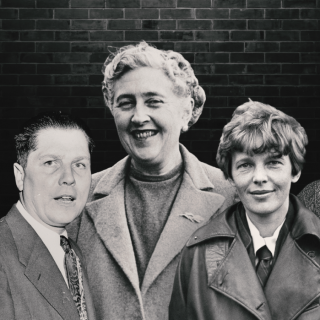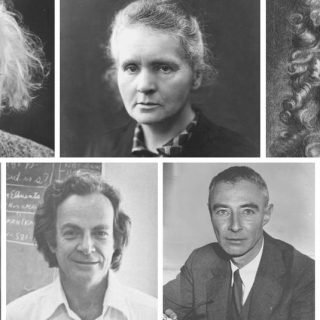|
Getting your Trinity Audio player ready...
|
Asian American and Pacific Islander contributions are frequently underrecognized. Meet 10 influential activists from these communities who have tirelessly advocated for the rights of marginalized groups, significantly advancing social justice and equality.
Frank Emi
Frank Emi, born in the U.S. to Japanese parents, was interned in a Wyoming camp during WWII. He opposed a “loyalty” questionnaire requiring Japanese American men to agree to combat duty and pledge allegiance to the U.S., arguing for the restoration of their full citizenship rights first. Emi co-founded the “Fair Play Committee,” promoting draft resistance and demonstrating their prisoner status by trying to leave the camp. He was arrested, convicted of conspiracy to violate the Selective Service Act, and served 18 months of a four-year sentence. Emi remained an advocate until his death in 2010 at 94.
Larry Itliong
Larry Itliong, a pivotal leader in the farm labor movement, moved from the Philippines to the U.S. as a teenager and began fighting for workers’ rights. He worked in Alaska, Washington, and California, where he collaborated with Cesar Chavez. Itliong initiated the 1965 Delano Grape Strike, which led to the creation of the United Farm Workers (UFW) by merging his Agricultural Workers Organizing Committee with Chavez’s National Farm Workers Association. Although Chavez is more famous, Itliong’s crucial role in advancing labor rights deserves equal acknowledgment.
Fred Korematsu
Fred Korematsu contested the Japanese internment camps by taking his case to the U.S. Supreme Court. Born in Oakland to Japanese immigrants, he defied an order to report to an internment center during WWII and was arrested. Supported by the ACLU, Korematsu’s case questioned the legality of the evacuation orders. The Supreme Court upheld his conviction, which hindered his job prospects. His conviction was overturned in 1983, and he highlighted the risk of unjust imprisonment. Korematsu was later awarded the Presidential Medal of Freedom, and California commemorated him with Fred Korematsu Day starting January 30, 2011.
Kiyoshi Kiromiya
Kiyoshi Kuromiya, born in a Wyoming internment camp, emerged as a key advocate for antiwar, civil rights, and gay liberation causes. He took part in significant protests, including Martin Luther King Jr.’s March on Washington, and led a voter registration march in Montgomery in 1965. In 1969, he founded the Gay Liberation Front–Philadelphia and served as a delegate at the Black Panther Party’s Constitutional Convention. With the onset of the AIDS crisis, Kuromiya launched the Critical Path Project, providing a 24-hour hotline, a website, and free internet access for AIDS and HIV patients. He passed away from AIDS complications in 2000.
Philip Vera Cruz
Philip Vera Cruz, a Filipino American activist, devoted himself to improving the plight of farm laborers in California. Born in the Philippines, he migrated to the United States and endured difficult conditions while working on farms, harvesting grapes, lettuce, and asparagus. Together with Larry Itliong, he orchestrated the Delano Grape Strike of 1965 to advocate for improved wages. This initiative led to the establishment of the United Farm Workers union, where Vera Cruz played a pivotal role, eventually rising to vice president—the highest-ranking Filipino in the union. He highlighted how the union profoundly influenced his perspective, enabling him to apply his philosophical outlook to tangible social issues affecting workers’ livelihoods.
George Takei
George Takei, renowned for his acting and activism for LGBTQ rights, faced significant challenges early in life. Raised in Japanese internment camps during WWII, he later experienced poverty in Los Angeles’ Skid Row. Takei pursued higher education at UC Berkeley and UCLA, earning both bachelor’s and master’s degrees. Initially concealing his sexuality, he eventually came out and became a prominent advocate for LGBTQ rights. Engaging in civic and political endeavors, including a crucial role in developing Los Angeles’ subway system, Takei’s life experiences profoundly influenced his commitment to activism against injustice and discrimination.
Yuri Kochiyama
Yuri Kochiyama, driven by her experience in WWII internment camps, became a prominent activist. Following her family’s internment, she relocated to New York City, where she deeply immersed herself in the civil rights movement and befriended Malcolm X. Kochiyama championed global liberation and the rights of Asian Americans, actively opposing the Vietnam War and advocating for compensation for internment camp survivors. She gained recognition for comforting Malcolm X as he lay dying after his assassination in 1965. Kochiyama dedicated her life to activism, maintaining steadfast commitment until her passing in 2014 at the age of 93, leaving behind a legacy of impassioned advocacy for marginalized communities.
Haunani-Kay Trask
Born in 1949 to a family advocating for Hawaiian statehood, Haunani-Kay Trask diverged by dedicating her life to fighting for her people’s independence. Educated at the University of Wisconsin and the University of Chicago, where she joined the Black Panther Party, Trask returned to Hawaii to teach at the University of Hawaii at Manoa. She focused on preserving Hawaiian culture and advancing indigenous rights, which defined her career. Recognized with the Angela Y. Davis Prize in 2019 for her contributions to education and the arts, Trask remained committed until her passing in 2021, leaving a profound impact on Hawaiian and Pacific Island communities.
Anna May Wong
Anna May Wong, born as Wong Liu Tsong in 1905 Los Angeles, gained fame as the inaugural Asian American film star. Despite encountering racial hostility while attending public schools in Chinatown, she ventured into the film industry, beginning as an extra in her teenage years. Hindered by industry prejudices and laws prohibiting interracial intimacy, she faced challenges in securing leading roles in the US, leading her to pursue stage opportunities in Europe. Wong’s impact remains profound as she broke barriers, becoming the first Asian American to achieve movie stardom despite pervasive discrimination in Hollywood.
George Helm Jr.
George Helm Jr., born on Molokai, Hawaii, dedicated his brief life to preserving Hawaiian culture. He moved to Honolulu for schooling, where he became a notable philosopher and a pivotal figure in advocating for Hawaiian sovereignty. In 1975, Helm joined efforts to protect Kaho’olawe from U.S. Navy bombing and later led a peaceful occupation of the island, deeply connecting with its spiritual importance. Tragically, Helm passed away at 26 while attempting to return to Maui in challenging weather conditions. His activism and music continue to resonate on Hawaiian radio, ensuring his legacy in the struggle for Hawaiian independence remains influential.




